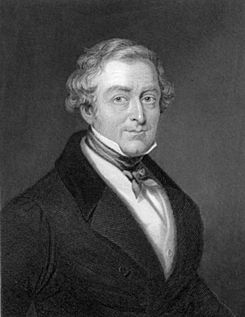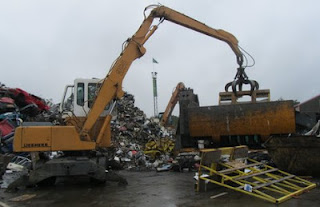1. During
a time of government cuts, how would you protect community policing teams?
Public visibility, engagement and
responsiveness of uniformed staff, critical to public confidence and well-being
are not best measured by crude figures of overall staff numbers or posts. I am
already hearing about reduced visibility of PCSO’s for example when talking
with people on the doorstep or in their High Streets. I want to see developed,
in partnership with local people, widely understood measures that can be
tracked over time and used to check that resources are deployed where they are
needed. That these measures focus on community policing teams.I think that in
order to supplement, not replace, these teams there needs to be a drive again
to recruit more Special Constables. Also to consider schemes such as officers
(Police, PCSO’s and Specials) on bikes for this might go some way to increasing
visibility of community policing teams. There are 22 PCSO posts currently
funded from sources other than Suffolk Police, and these need to be protected.

Suffolk Police Authority has received
positive reports from HM Inspectorate of Constabulary for it’s innovative
approach in developing ‘shared services’ with Norfolk Police as a means of
limiting the impact of financial pressures on ‘front line’ uniformed staff
numbers. I know that without such collaboration Suffolk would be unable to
survive the cuts and I don’t have a problem making economies in this way.
I am though concerned that Suffolk gets
a good deal from all joint initiatives like this and critically that Suffolk
people are more informed and engaged than they have been through proper consultation
on such changes. I will be looking into collaboration in some detail to ensure
there is no longer term impact on community policing teams. I do not want to
see a merger of the two forces developing by default or, ultimately, the
appointment of a single Chief Constable.

I have pledged to keep police on the
street. I stand against the privatization of policing services as I believe it
will impact negatively on community policing teams. The push for privatization
is significant in our region and a major contract for Cambridgeshire,
Hertfordshire and Bedfordshire has just been postponed until after the PCC
elections. We are seeing reference to ‘patrols’ in such contracts. Our police
service is based on policing by consent and the idea that police officers are
members of the public. Community policing teams are also supported by a whole
range of other police staff and other agencies.
I do not believe our model of policing
can be realised if we have private companies delivering a range of policing
services from patrol through to the control room. We are already seeing private
firms delivering public services refusing to answer Freedom of Information
enquiries. They are able to do so under the guise of ‘commercial confidentiality’
and this means that transparency and accountability to local people is eroded.
There is also concern that contracts purchased by the Government have wasted
money and there appears to be no clear strategy to protect community policing.
2. Is
spending £70,000 + on a PCC salary the best use of scarce public funds in this
time of financial austerity?
I believe that the concept of a democratically
elected person bringing local accountability to policing is a sound one. Additionally
I have pledged to donate a proportion of my salary to charity. When the idea of
Police Commissioners was first put forward by Whitehall gurus during the
previous government, it was the Local Government Association (LGA) under the
Labour leadership of Sir Jeremy Beecham that led the campaign to convince the
government that this was a costly and unnecessary exercise.
Unsurprisingly the LGA had the unanimous support
of Conservative Councils who all argued that existing Police Authorities were
best placed to provide local accountability for the Police. The Conservative Party also though campaigned
against the idea of PCCs and accused the government of riding rough-shod over
the views of councils. The Labour Home
Secretary took the approach from the LGA seriously, and reversed the decision
to set up elected PCCs. It was
surprising therefore that that the Conservative-led government should then
institute elected PCCs so soon after taking power.

The annual salary is in fact the least
of it. The costs of the legislation and elections at this time could, according
to some estimates, have funded an additional 5000 police officers. In Suffolk,
the basic allowance of each Police Authority member (currently 17) if claimed,
is over £7k p.a. on the basis of a commitment of 25 hours per month. The total
Police Authority budget is currently just over £1 million. This budget will be subject
to cuts, but the Police & Crime Commissioners office (including the PCC salary)
will eventually come from it.
Having said all of this, the people of Suffolk
now deserve the best candidate. A PCC who has not had direct experience of
working with the police and the wider criminal justice system and those most
vulnerable in our society, will not be able to ensure that the police’s limited
resources are spent in the best way. Nor will they provide the appropriate
level of influence to other critical partners, and so justify the salary. I
have the right background and experience which is why I applied. These are
political appointments but I am committed to ensuring that I represent all the
citizens of Suffolk. I will meet regularly with all political parties &
Independent groups in Suffolk.
3. Can
you promise to retain and improve existing Safer Neighbourhood Teams?
I ’m happy to commit to retaining Safer
Neighbourhood teams and to seeking improvements. It is essential that officers
know their communities and benefit from that additional local intelligence that
comes from regular contact. SNT’s are however also dependent on a range of
partners and this includes the voluntary and community sector, who often play a
vital role at a local level. PCC’s have a role, in listening to communities, to
ensure that, so far as is possible, policing resources are deployed to reflect
public priorities.
PCC’s present a real opportunity to
influence other partners to play their part. As PCC, in discussion with the
Chief Constable and communities I need to understand what is working and what
isn’t and then use my influence to bring partners to the table, to resolve
issues of community safety. There are tremendous risks and challenges in trying
to achieve this, not least because genuine fears of crime and victimisation and
insecurity often do not reflect any calculus of actual risk. Only by working directly
with communities, ensuring all interests are represented and have a voice is
progress likely to be made.
4. What
role do you think the Police should have in establishing positive activities
for young people in local communities? What actions would you encourage them to
take?
It is vitally important that the police
have the opportunity to meet and listen to all sections of the community
including young people who sometimes find themselves stereotyped by society.
The Stop & Search reference group, led by young black men, I helped set up
is an example of that. There are fantastic examples in Suffolk of other successful
activities involving the police and young people. I would encourage the police
to continue with these, but to ensure that they are inclusive and that they do
so with other partners such as schools, clubs etc
Activities must be part of a sustainable
wider strategy of meaningful youth engagement to improve trust and confidence
and safety of our young people. Young people themselves need to be at the heart
of this strategy and design it and they need to say when they want the police
involved and when they don’t. I have already spoken with many young people,
including Suffolk Youth Parliament, about a youth led policing forum in
localities. As we have seen youth services disappear across Suffolk the role of
the police and the PCC to influence other partners to develop positive
activities will be more necessary.
5. Do
you agree that rehabilitation should be the focus of the justice system? Would
you promote community sentences and restorative justice for less serious
crimes?
Yes, I do, with some caveats. I wanted
to comment firstly though that we need to ensure offenders are brought to court
much more quickly than is currently the case. This will be better for victims
and means better outcomes for Restorative Justice, where it is agreed.
Recidivism measures the current failure
of our criminal justice system to contribute to building a better society. If
we can avoid criminal records for low level crimes then we are giving people
better opportunities not to reoffend. Prisons are needed but the lions share of
their costs are devoted to security not the rehabilitation of those sent there.
I have 1st hand experience of some of Suffolk’s prisons and have
been actively involved in providing meaningful work experience for young &
adult offenders and ex offenders. As PCC there are some challenges here as the
majority of Suffolk’s offenders spend their time in prisons outside of Suffolk.
I think there are opportunities as part
of a wider national network of PCC’s to look at this issue along with colleagues
in Probation, Prison, Courts, Crown Prosecution Service and voluntary and
community sector working in this area. I will seek to influence rehabilitation
opportunities for Suffolk offenders to reduce their reoffending rates when they
return to Suffolk. This will include challenging the cuts to education, drug
and alcohol services and ensure perpetrator programmes linked to domestic
violence, sexual violence and hate crimes are available.
I am a strong supporter of Restorative
Justice as used effectively it can help turn lives around and have a
significant impact on reducing reoffending rates. Research undertaken by the
Restorative Justice Council shows higher level of victim satisfaction and
reduced reoffending rates. It is vital though that it is delivered by
accredited experts and subject to close scrutiny, evaluation and monitoring.
The Labour Party wants to see Restorative Justice offered routinely to all
victims as part of sentencing requirements.
Community Resolution again is an
effective tool, delivering justice and solutions at a local level with no need
to go to court. I know however that the victim does not necessarily have to
agree to Community Resolution as an outcome and the police officer has
discretion (this may change with the recent announcements on this by the
Conservative Party) I was concerned to read recently that whilst Suffolk has a high
use of Community Resolution there were some offenders who had been the subject
of multiple use of Community Resolution. It must not be used in place of
alternative sanctions and rehabilitation tools in order to drive up detection
rates and reduce the burden on a reduced and stretched court service. It has an
important role to play and should be used wisely, by well trained officers, and
its use, including victim satisfaction rates, must be closely monitored and
evaluated.
I believe that the needs & wishes
of victims should be central to the criminal justice system. There is an
important role too for independent specialist victim services to help victims
make the right decision. As PCC I want to ensure that these tools are used in
the right place at the right time and that those delivering them are
effectively trained to do so.
6. How
would you support the right to peaceful protest?
The police have a vital role to play in
ensuring that peoples’ right to peaceful protest is properly protected and
respected. This is true for Countryside Alliance supporters to those protesting
against cuts to disability benefits. I have taken part in many peaceful
protests. We have a proud, legitimate and strong tradition in the UK of setting
new standards and norms and producing change, through peaceful protest. This
includes maintaining the right for life to continue as normal for those who live,
work and visit areas where a protest takes place. It’s not an expensive luxury
to be dispensed with. Nor should it be seen as an easy source of savings in
straitened times. People will always campaign against injustice and in a
changing world what’s seen as unjust will always be changing. As the PCC I will
ensure, in discussion with the Chief Constable that this right remains intact
and that the police response is effective and proportionate.
7. Would
you give more attention to addressing environmental, wildlife and animal
crimes?
Yes. One of the most pressing needs for the
successful prosecution of environmental crime is a realistic schedule of
penalties. I will seek to ensure that
Suffolk Police are serious in pursuing environmental crime, working in
partnership with Local Authorities and the Environment Agency. Additionally I
will use my position (in conjunction with other concerned PCCs) to lobby
government to make the penalties for environmental crime sufficiently strong to
deter the crime. I would also seek to enable improved enforcement to be funded
from the proceeds of the fines. Wildlife crime is often linked to other rural
crimes such as theft of diesel and metal.

As PCC I would like to see a clear strategy
developed with other statutory and voluntary partners to support enforcement
and detection. Animal crimes are also on the increase and we know that in these
times of cuts agencies such as the RSPCA, and indeed local animal shelters are
struggling to meet demand. Again this is about partnership working, with the
voluntary and community sector as key to deliver prevention messages as well as
enforcement. I feel that these types of crime are too
often ignored unreported and rendered invisible. This needs to change, but it
will change only when people believe it’s worthwhile to report such crimes. To
get to that position means people having confidence that their reports will be
treated seriously and acted upon. As PCC, I will meet regularly with and listen
to independent groups that understand and work on these issues and their wider
social impact.
8. How
would you ensure that the 52,000 people from black and ethnic minority
backgrounds living in the County receive equal police treatment and protection?
I would say that the figure given is
likely to be a significant underestimate. I know from my previous role this
figure does not include a very transient population; people who are sofa
surfing or those living in houses of multiple occupation. It is vital that the
police have the trust and confidence of all communities if the policing by
consent model is to be realised.
Statistically people from Black and
Minority Ethnic (BME) communities are more likely to be victims of crime and so
it is vital that they have high level of trust and confidence in the police.
The right sort of training must be delivered throughout the service and a
culture of discussion and openness on issues that impact on BME people
developed. Officers, police staff and Specials must be empowered and confident
in this regard.
Community led reference groups on
complex issues of racial inequality such as stop and search are vital. Vital
too is working with grass roots groups, who are equipped to understand people’s
rights, to allow people to come and talk about their experience of local
policing. This should include places where complaints can be aired in a safe
place – 3rd party reporting centres for example.
My direct experience of police
complaints shows that officers who may display racist attitudes are often
poorest in their treatment of people generally. What is important is that
outcomes from complaints and challenges are used to shape policy and practice
across the organization to achieve change.
I think it is imperative that the
Equality Duties are embedded in the police service. Analysis and information on
issues such as Stop and Search, Hate Crime (including response times, support
for victims, prosecution & outcomes) BME people who are victims of crime,
BME people who are perpetrators of crime, Complaints, BME recruitment must be
shared in an accessible way. Despite the demographic changes in Suffolk there
remains a significant underrepresentation of Black and Minority Ethnic officers
and staff in all roles and across the ranks and grades. This needs to be
reviewed to understand why in order that positive action can be taken to
address the inequalities.
As PCC I will lead on creating a
culture of transparency and openness within the service. I will meet regularly with
BME communities & representative groups, who must be actively involved in
discussions on these issues to arrive at solutions & strategies for change.













.JPG)
.JPG)
.JPG)






.JPG)





.JPG)
.JPG)
.JPG)






.JPG)